Visiting the Computer History Museum
Wed, Dec 28, 2011
This blog has been quiet for a while…
- Real life has a habit of taking over during the holiday season.
- New work project - getting up to speed on Android programming.
- … yes, I have been playing skyrim.
So I haven’t had much time to write for a while.
However, I did get a very nice break over christmas where I went down to California and managed to finally
visit the Computer History Museum - Yes, I am a geek, this is a technical
blog, deal with it!
I really, really enjoyed the visit. I had almost the full day, but I wish I had a few more hours - I’ll
have to plan a second trip. The museum is very well organized, although I wasn’t always 100% sure I was
going in a chronological direction.
Most of the museum is dedicated to the main exhibition Revolution - The First 2000 Years of Computing,
taking us through from the Abacus to the World Wide Web:
- Calculators
- Punched Cards
- Analog Computers
- Birth of the Computer
- Early Computer Companies
- Real Time Computing
- Mainframe Computers
- Memory & Storage
- The Art of Programming
- Supercomputers
- Minicomputers
- Digital Logic
- Artificial Intelligence & Robots
- Input & Output
- Computer Graphics, Music, and Art
- Computer Games
- Personal Computers
- Mobile Computing
- Networking
- The Web
I grew up with personal computers in the 80’s, 90’s and beyond, and I’ve read a lot about what I (used to) think
of as computing history… Xerox parc, Doug Engelbart and Ivan Sutherland, Homebrew Computer Club and early Apple
and Microsoft days… and I went in expecting mostly personal computer stuff, but I now realise that there is much, much
more to computing history than just the personal computer.
I mean, of course, I knew of the Babbage Engine, the Eniac, Enigma, Collosus and Cray and such, (not to mention the
Abacus and the Slide Rule), but I hadn’t really put them into context until wandering (in chronological order!) through the
museum, and it was really fascinating.
I also really enjoyed seeing some of the computers I grew up with, the Commodore64, ZX Spectrum, Amiga,
SpeakNSpell, Little Professor… and of course the games, Pong, Atari, PacMan, Infocom…
I have only a few, very very minor negatives:
- Coverage is broad, but not necessarily deep - the nature of museums.
- As a software guy, I thought programming was a bit short changed.
- Wish the store had a larger selection of books.
- They have an awesome programming languages chart on the wall, but not available to purchase (yet).
Even so, I highly recommend any self respecting computer geek taking a day out to go visit in person, or even just online:
Here are some photo’s of the bits that stood out for me (in no particular order):
UPDATE: _The links below may be out of date because the computer history museum display is subject to change
| The Altair 8800 - a heavy influence on the homebrew computer club |
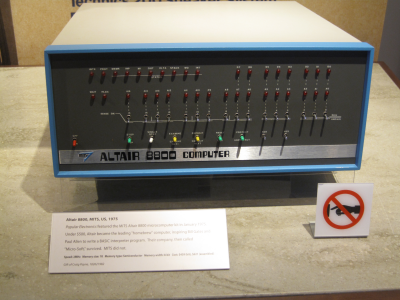 |
|
|
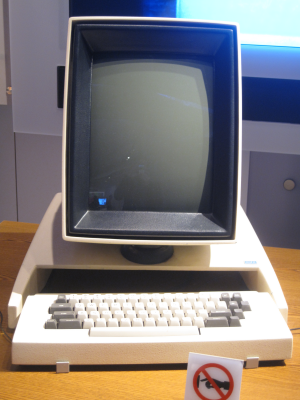 |
The Xerox parc Alto - amazingly ahead of its time |
| The Amiga - best 16 bit machine ever! |
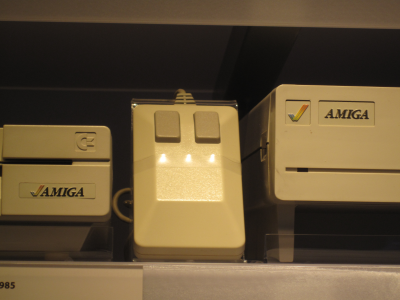 |
|
|
 |
The original wooden Apple 1 |
| Atari 2600 - a gaming classic |
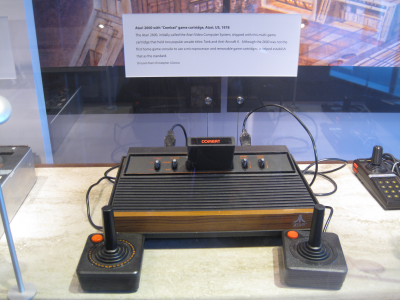 |
|
|
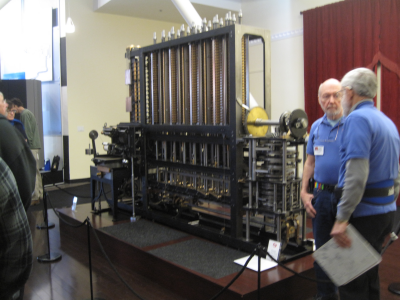 |
Babbage Difference Engine #2 - not built in his lifetime - not until 1995! |
| The Xerox parc hippie bean bag |
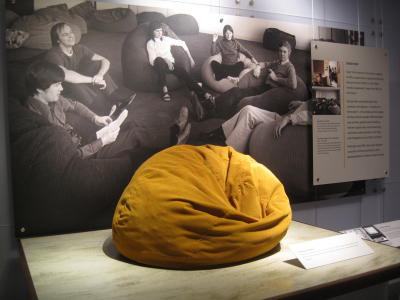 |
|
|
 |
Welcome to the Computer History Museum |
| The Commodore64 - my first computer - learned Basic and 6510 assembler on this |
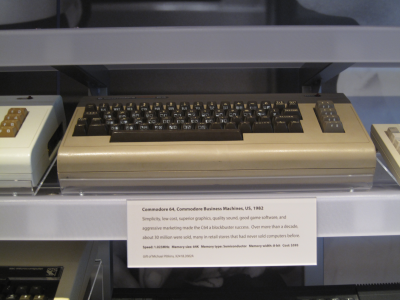 |
|
|
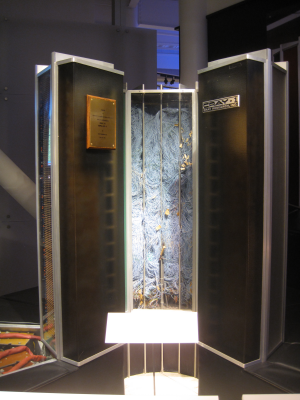 |
A Cray super computer |
| Eniac - WW2 Workhorse |
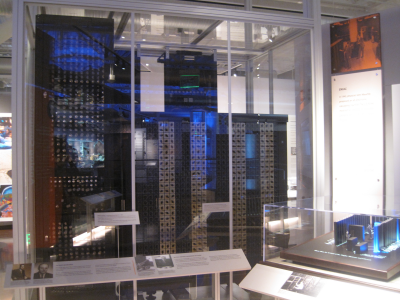 |
|
|
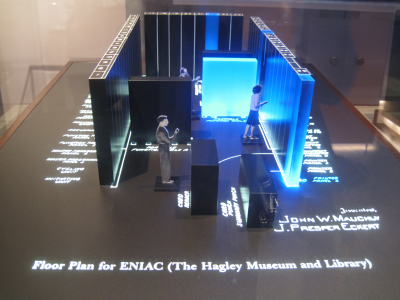 |
Eniac Diorama - takes up the whole room |
| Eniac on a Chip - Moores law in action |
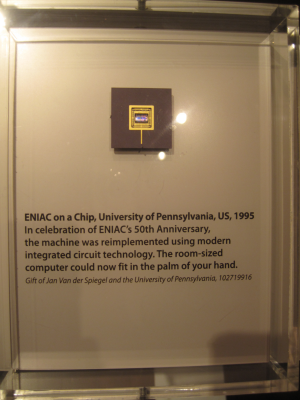 |
|
|
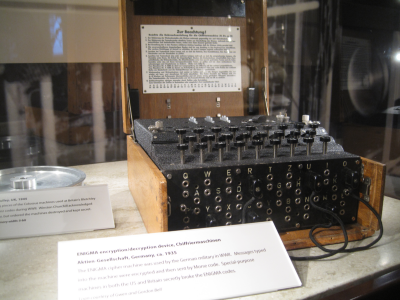 |
The germans WW2 enigma code maker |
| Ahhhh games, my favorite reason for computing |
 |
|
|
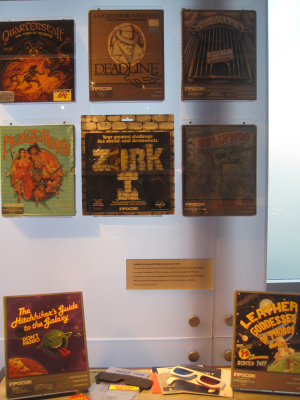 |
I spent many childhood years playing Infocom text adventures |
| Awesome flow chart of the the history of programming languages - wish there was a poster version! |
 |
|
|
 |
Holy Crap! an online Craigslist in the 70s - go readup on it! |
| Doug Engelbarts original wooden mouse prototype |
 |
|
|
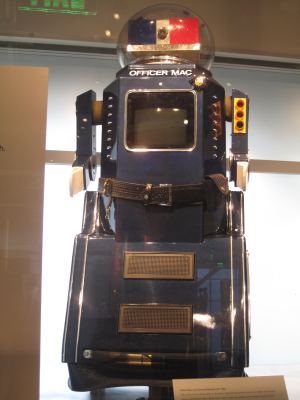 |
Ha Ha Ha - Officer Mac |
| What pixar built before movies |
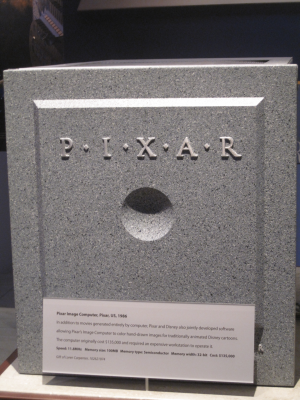 |
|
|
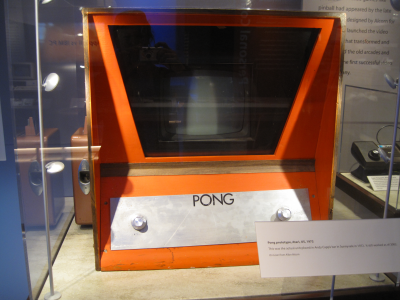 |
The original Pong prototype machine |
| Welcome to the Computer History Museum |
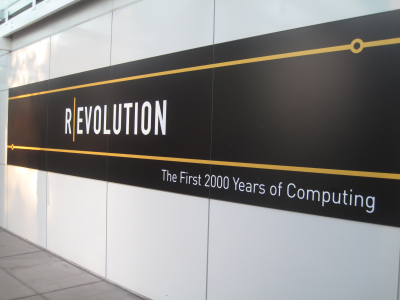 |
|
|
 |
Ha Ha Ha - Dot Com Boom at its finest |
| Childhood memories - Speak n Spell and a ZX Spectrum |
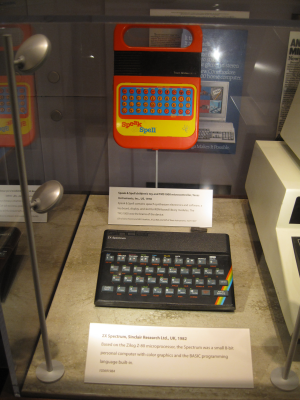 |
|
|
 |
The ZX Spectrum - nowhere near as good as the Commodore64 |
| You arent graphics programming until you have a spinning teapot |
 |
|
|
 |
The mechanical Turk |
| Classic Windows vs Mac |
 |
|






























